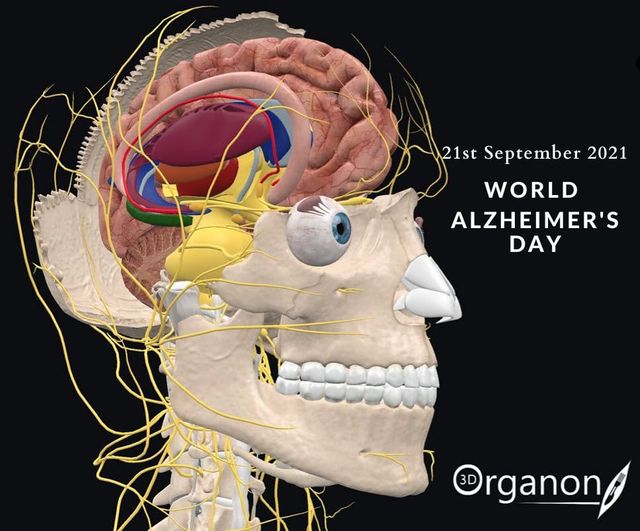The 21st of September is marked as World Alzheimer’s Day. This day raises awareness about this major neurological disease that threatens our mental health. Alzheimer’s disease is the most common type of dementia, affecting up to 70% of all people with dementia. It was first recorded in 1907 by Dr. Alois Alzheimer.
Alzheimer’s disease is a progressive neurologic disorder that provokes the death of the neurons and atrophy (shrinking) of the brain. Patients with this disease will develop severe memory impairment. Short-term memory loss is one of the first symptoms that will develop, and as the disease progresses to deeper parts of the brain, long-term memory is also lost. The disease also affects many of the brain’s other functions, such as behavior and personality, with the patients losing the ability to complete everyday duties.
Symptoms vary, and the disease progresses differently among the patients according to the individual and the areas of the brain affected. A person’s abilities may fluctuate from day to day, worsening in times of stress, fatigue in or illness.
The disease eventually leads to complete dependence and finally death, usually from another illness. Life expectancy varies among patients, with the average being seven to ten years.
There is no cure for Alzheimer’s disease. However, groups of drugs appear to be providing some temporary improvement in cognitive functioning for some people with mild to moderate disease. Community support is also very crucial for patients and their families.
For the latest news, follow 3D Organon on social media.

